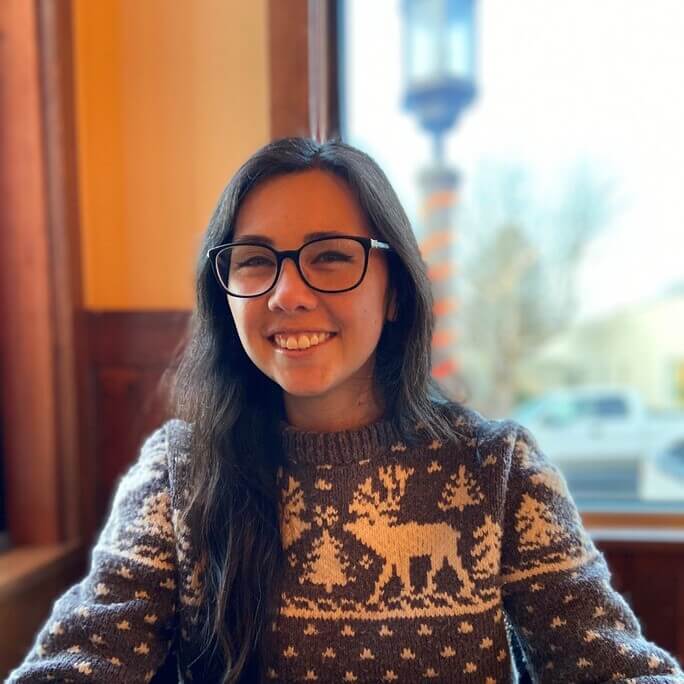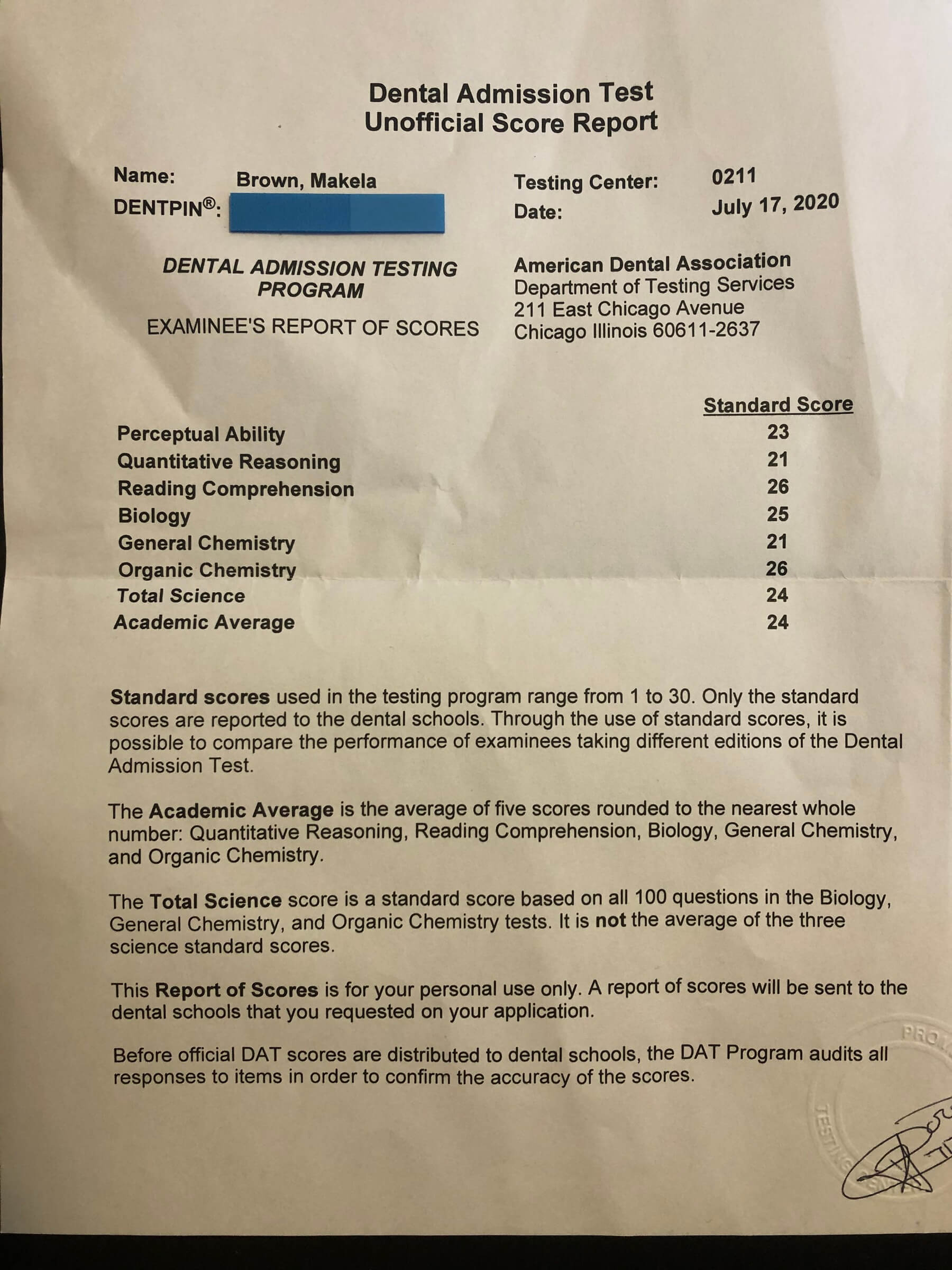Featured Student of November

Meet Makela, a happy DAT Bootcamp customer who recently conquered the DAT. I’ve asked Makela to share her DAT experience with us as the featured student of November.
What was your experience like as a non-traditional student and how did that shape the way you studied for your DAT?
I completed my bachelor’s degree in International Relations in 2015. After graduating, I worked in a commercial real estate construction company as a Contract Manager for four years before deciding I wanted to pursue a career in dentistry. I started working on my pre-requisites while employed full-time. Finally, before the Fall 2019 semester, I left my job to put all my focus into school and studying for the DAT. I was originally scheduled to take the DAT in March, but due to COVID-19 my testing date was rescheduled, and I finally took the DAT in July.
Transitioning from an office job to studying for the DAT was difficult, both mentally and practically. I worried that I was starting too late in life and that I wouldn’t have a steady career until I was in my mid-thirties. I worried that I had been out of school too long and would miss out on important parts of my life by starting over as a student. But, these concerns quelled as I realized I loved learning and was passionate about what I could do with my life through dentistry. And hey, one day I would be forty anyway, might as well be forty and a doctor!
While preparing for the DAT, being a non-traditional student came with both benefits and drawbacks. I had developed strong time-management skills, already established my learning style, and had a support system that extended beyond only my parents. I was fortunate to have already completed my bachelor’s degree, so I was only taking courses related to dentistry pre-requisites which also included large portions of the DAT testing material. The major drawback of being a non-traditional student was adjusting to a responsibility that extended beyond a 9-5 job. With an office job, when you get home you are off the clock and can focus completely on just being home. But as a student, there is always more studying or more learning that could be done. Coming home from school and going straight into focusing on DAT material or spending weekends in the library was a very difficult transition. This took time and a lot of patience and commiserating with many of my fellow non-traditional students!
How did you use DAT Bootcamp to prepare for the DAT?
I relied very heavily on the DAT Bootcamp Biology Notes. For chapters with a lot of information, I would print out the chapter notes and highlight key terms and phrases. Then, I would condense all the information from the chapter into one page of notes in my own words, focusing on the areas I found most difficult. I used this version of the notes to review any time I was working on biology. If I missed a question on a practice test, I would reread that chapter of notes and add information that I missed in a different color.
I have always struggled with math, so it was no surprise that quantitative reasoning was by far my weakest section. I was consistently scoring 16 and 17 on practice exams. I improved my score with lots and lots of practice problems. DAT Bootcamp has practice problems broken down by question type which I found very helpful. Practice exams helped me narrow down which QR sections I was weakest on so I could spend time with the lecture videos and supplementary materials for those sections to gain a stronger foundation that could be applied to all questions in that area. This was a very time-efficient way of dramatically improving a weak subject area. I did not memorize all of the equations, but I found questions about permutation/combination, distance = rate/time, and dilutions appeared often in practice tests and I took time to memorize and understand how to use these formulas.
As someone who struggles to do quick mental math, the most difficult aspect of the general chemistry section was not having a calculator. I would definitely advise taking the time to ensure you know how to quickly multiply and divide by values less than one, 0.082 in particular!
Whenever I found my mind wandering or I felt like I needed a break from science, I would practice PAT questions because I actually found them very enjoyable. I also tried to end each day with around 30 minutes of practice problems where I focused on my weakest sections.
What was it like taking your DAT after its getting postponed due to COVID-19, and how did you approach this challenge?
My DAT was originally scheduled for March, but two weeks before my test date all the Prometric Test Centers closed due to COVID-19. I rescheduled for April and it was postponed again. I thought May would be the final date, third time is the charm after all. Not for me! With lucky number four, I finally took the test in July. Besides being very emotionally taxing, the extra time was difficult because I had been working through the material at a rate expecting to be done in two weeks. I only had three practice tests left to use over the four more months of added studying time.
When my test date was solidified for July, I took some time off from DAT studying and focused on school from April-May. At the beginning of June, I re-started DAT preparation with a practice test to see in which areas I was weakest. I retook the practice tests I had already completed once a week to acclimate to the testing conditions and strengthen my time management. I also started taking the full-length practice tests with a face mask on to make sure I was prepared for the actual testing conditions.
- Biology25
- General Chemistry21
- Organic Chemistry26
- Reading Comprehension26
- Perceptual Ability23
- Quantitative Reasoning21
- Academic Average24


